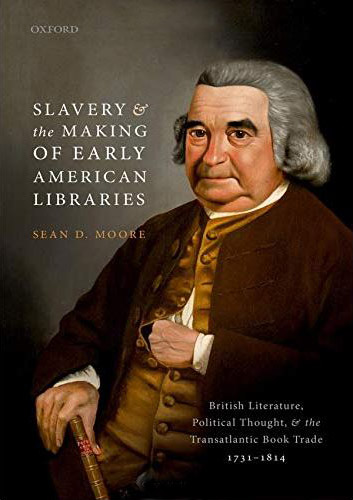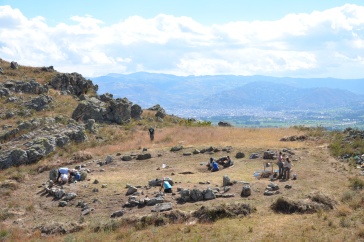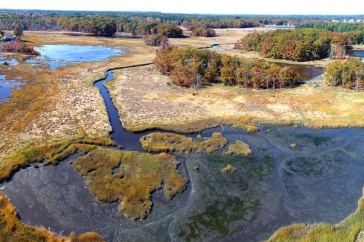
Sean Moore, associate professor of English
“Early American libraries stood at the nexus of two transatlantic branches of commerce — the book trade and the slave trade.” So writes associate professor of English Sean Moore in his new book, "Slavery and the Making of Early American Libraries: British Literature, Political Thought and the Transatlantic Book Trade, 1731-1814," the first book in early American and 18-century British studies to fuse our growing understanding of the material culture of the transatlantic text with our awareness of slavery as an economic and philanthropic basis for the production and consumption of knowledge.
The editor of the international journal Eighteenth-Century Studies, Moore is the author of “Swift, the Book and the Irish Financial Revolution: Satire and Sovereignty in Colonial Ireland" (Johns Hopkins UP, 2010), which won the Murphy Prize for Distinguished First Book from the American Conference for Irish Studies (ACIS). We spoke with Moore about his research and how his findings challenge commonly held beliefs about who profited from slavery both before, and after, the American Revolution.

What problem do you address in the book?
The two central problems I address are the broader research question of how slavery relates to the foundation of American cultural institutions like universities and libraries, and the narrower one of how and why colonial Americans used profits from slavery to purchase imported books.
That narrower question was the product of wanting to know more about the 18-century culture of taste and why affluent Americans wanted so badly to have English china, silverware, furniture, clothes, art, architecture and books that they heard about through the latest imported London magazines. I found that early American affluent Anglophiles were modelling their lives on the authors and characters presented to them in British literary genres like plays and novels, and that they were doing what Phyllis Hunter calls “purchasing identity” through their investments in slavery and related enterprises like sugar, rum, tobacco and shipbuilding.
How did you make the connection between reading habits and slavery?
Well, I’m hardly the first to explore the connections between slavery and Anglo-American culture, but I began my research with some investigative sleuthing. I asked myself how these affluent readers paid for all of these books? Then, by narrowing my inquiry to the investigation of early private libraries — proprietary subscription libraries where you needed to own a share of stock to borrow a book — I was able to cross reference the records of who were shareholders in the libraries of five major seaports with archival evidence of their business dealings.
Then, I got free online access to the papers of Washington, Jefferson, Madison and other Virginians with extensive private libraries. It turned out their practice was to put their tobacco or rice or other slavery-produced crop on a Europe-bound ship and enclose a list of goods — tools, wine, books, etc. — they wanted to barter for in return.
So, you focused mostly on southern slaveowners?
Not at all. One of the myths you and I grew up with is that slavery was limited to the South. To get a complete national picture, I didn’t limit myself to slave traders but to people who owned shares in these libraries. Then I looked at their business dealings and, bingo! you are everywhere in 18-century America.
Describe the North’s contribution to slavery.
First of all, northerners did own slaves well into the nineteenth century. They didn’t have big rice or tobacco plantations. Most would have a single domestic servant who might be either an African or Native American, although in Medford, Mass., you can tour the house of Isaac Royal, who owned about 40 slaves.
In the North the real money came from ship building, rum distilling and fishing out of places like Boston, Salem, Providence and Newburyport. First, the ships cost a lot of money to buy. Second, merchants from these cities all traded with the West Indies in what has become known as the Transatlantic Slave Triangle. The wealth created thereby got put into the great New England banks and insurance firms, which in turn insured slave ships up until the Civil War. The whole Atlantic economy was effectively based on slave trade.
...I began my research with some investigative sleuthing. I asked myself how these affluent readers paid for all of these books?
If Americans loved English culture so much, why did we go to war with it?
Here, again, the public-school history you and I grew up with about patriotic Americans rising up to challenge an evil colonial empire was, in retrospect, quite a bit more complicated. There’s a lot of evidence that the patriots were fighting what Gerald Horne called a “conservative counter-revolution” against the British Empire’s increasingly abolitionist legal decisions and legal theory.
For example, in the Somerset Case of 1772, an American slave travelled to England with his master and promptly escaped, as you’d imagine he would. The case, which was closely watched on both sides of the Atlantic, went to highest court where justice William Murray of Mansfield said he was free on British soil. Now, England was an empire so if you make a legal decision in part of the empire it stands in the other parts as well. This freaked out the colonists.
After the Revolution, the slave trade business accelerated in New York state until the trade was abolished in 1807, after which New York-owned vessels continued with illegal slave trading through 1860.
Surely all U.S. leaders weren’t pro-slavery?
Far from it! Yet, the voices of the great abolitionist writers have never received the attention of the Virginian “gentlemen” and others who profited from slavery. For example, few people know that Franklin became anti-slavery. And one of my favorite passages in my book comes from John Adams, who wrote to Robert Evans in 1819: “I have through my whole life held the practice of Slavery in such abhorrence — that I have never owned a Negro or any other Slave — though I have lived for many years in a time when the practice was not disgraceful when the best men in my Vicinity — thought it not inconsistent with their Character. …”
You also make a broader point about contextual history.
I wanted the book to reinforce a point that others have made in relation to our understanding of American intellectual history: it’s always the labor of people like slaves that create our elite intellectual leaders, as well as the prestigious universities they attend and the positions of power they enjoy. We need to keep this in mind when we read and talk about great books and great ideas. What was the deep context, political, social and economic, in which they arose and became the official ideology of a nation?
-
Written By:
Dave Moore | Freelance Writer
















































